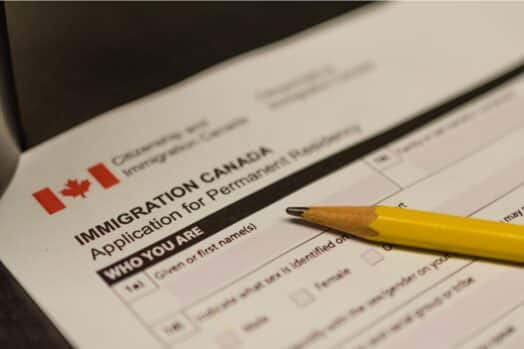
Immigration Refugees and Citizenship Canada (IRCC) has visa processing offices around the world.
Often one office will be responsible for one region of the world and will serve citizens of many countries.
This is intended to help speed up processing times, but there is sometimes a disparity in office locations regarding how long it takes to process a visa.
Find out if you are eligible for Canadian immigration
Service standards and processing times
IRCC has different service standards that vary depending on the type of application. A service standard is a goal that IRCC sets for the time it should take to process a request. for example, all Express Entry requests received after July 2022 have a six-month service standard and temporary resident visas have a service standard between 60-120 days.
The service standard is different from the actual amount of time that IRCC takes to process requests. Applications that are not processed within the service standard for your program are classified as overdue.
IRCC aims to process at least 80% of all requests within the service standard.
Why are there differences between processing offices?
IRCC says that visa offices have different operational challenges depending on the country or region in which they are located. The IRCC FAQ page says that applications can be moved between offices to ensure they are processed as efficiently as possible.
The department says it may take longer to process an application if it is unclear or incomplete and the IRCC needs more information from the applicant. In this case, it may take additional time depending on how quickly and completely the applicant responds. It can also take longer to process an application if it is difficult to verify the applicant’s information, which can also vary by region.
Other factors contributing to regional disparities
Resource allocation plays an important role in regional disparities.
IRCC’s 2022 workforce demographics show that only 2% of its workforce is located internationally, while more than 55% are based at IRCC’s national headquarters in Ottawa. This means that capacity at international visa processing offices is limited compared to those in Canada.
IRCC opened a new visa processing center in the Philippines earlier this year and on May 4, Minister Fraser announced that the department is investing in a new processing center in Islamabad, Pakistan.
When the center opened in Manila, IRCC said that adding processing capacity helps accommodate the high volume of visa applications from around the world, as well as improve customer service, making it easier for more people to come to Canada.
Another factor that can cause the time to vary is the type of request received. Some apps take longer to process than others. For example, at the time of writing, the IRCC processing time tool shows that study permit applicants outside of Canada you will have to expect an average processing time of seven weeks. Request from within Canada has a standard service of three weeks.
On the contrary, according to the same tool, request Express Entry Federal Skilled Worker Program from outside of Canada it can take up to 26 months.
How did the recent strike affect processing times?
The recent strike by the Public Service Alliance of Canada prompted more than 155,000 federal government employees to go on strike from April 19 to May 3. During this time, IRCC advised that applicants could expect delays in processing new and ongoing applications.
Immigration Minister Sean Fraser he told reporters in Ottawa that he estimates 100,000 applications were not processed during the strike that would otherwise normally have been processed. However, he hopes it won’t take more than a few months to return to pre-pandemic service standards. He says this is due to measures already in place due to the COVID-19 pandemic that caused a backlog of applications reaching 2.7 million.
To get back on track after the pandemic, IRCC expanded digitization of applications and hired more than 1,000 additional employees. The minister told reporters that before the latest work stoppage, IRCC had returned to a pre-pandemic standard of service for permanent residence, family reunification and federal economic flows through the Express Entry system. Study and work permits were “within a day or two” of the pre-pandemic level of service.
The only stream where the minister said there was still a noticeable backlog was for temporary resident visas like visitor visas. He says that before the outage, the department was on track to return to a 30-day service standard this summer.
reference: www.cicnews.com